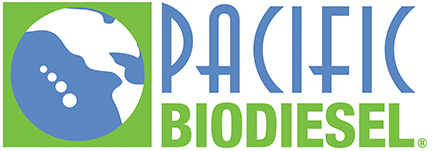Pacific Biodiesel spearheads Hawaii agriculture-based biofuel to support the U.S. Army’s climate strategy and the Aloha State’s circular economy.
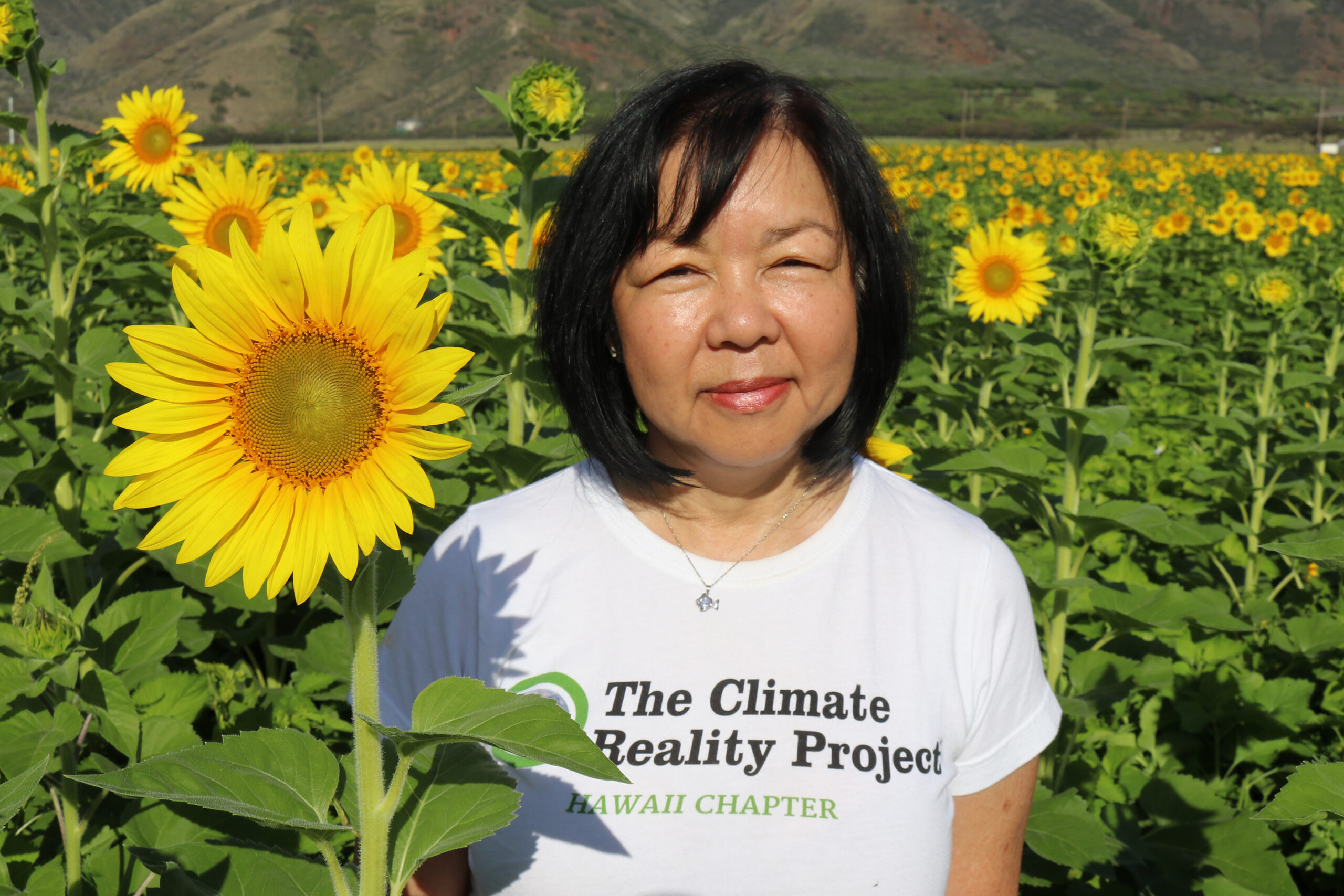
Pacific Biodiesel Co-founder Kelly King
By Kelly King, Co-founder, Pacific Biodiesel
Editorial featured in Biobased Diesel Daily, 1/16/24
Nearly two decades ago, I had the vision that local agricultural crops like sunflowers could help supplement the limited supply of used cooking oil in Hawaii as feedstock for our community-based biodiesel production. I was told time and again it can’t be done. State economists and agronomists said crops can’t be grown at scale for food and fuel in our tropical communities. Even one of our former partners was adamant that the model wouldn’t work.
Inspired by the beauty and utility of sunflowers, I ignored the naysayers and persevered in commitment of our company mission.
Pacific Biodiesel announced in January its expansion of operations to Kauai as part a multi-year agreement signed last year with the U.S. Army Corps of Engineers’ Engineer Research and Development Center for a project with its Construction Engineering Research Laboratory that will demonstrate renewable biofuel produced in Hawaii from multiple locally grown oilseed cover crops.
The effort will strengthen Hawaii’s food security, energy security and supply chain resiliency.
Supporting the U.S. Army Climate Strategy, this project will produce a prototype solution for biofuel as well as the agricultural model to produce the renewable fuel in Hawaii. It will validate the transition to this drop-in fuel for military application, including transportation and power generation installations, and will help the military reach our State goal of 100% renewable utility power by 2045.
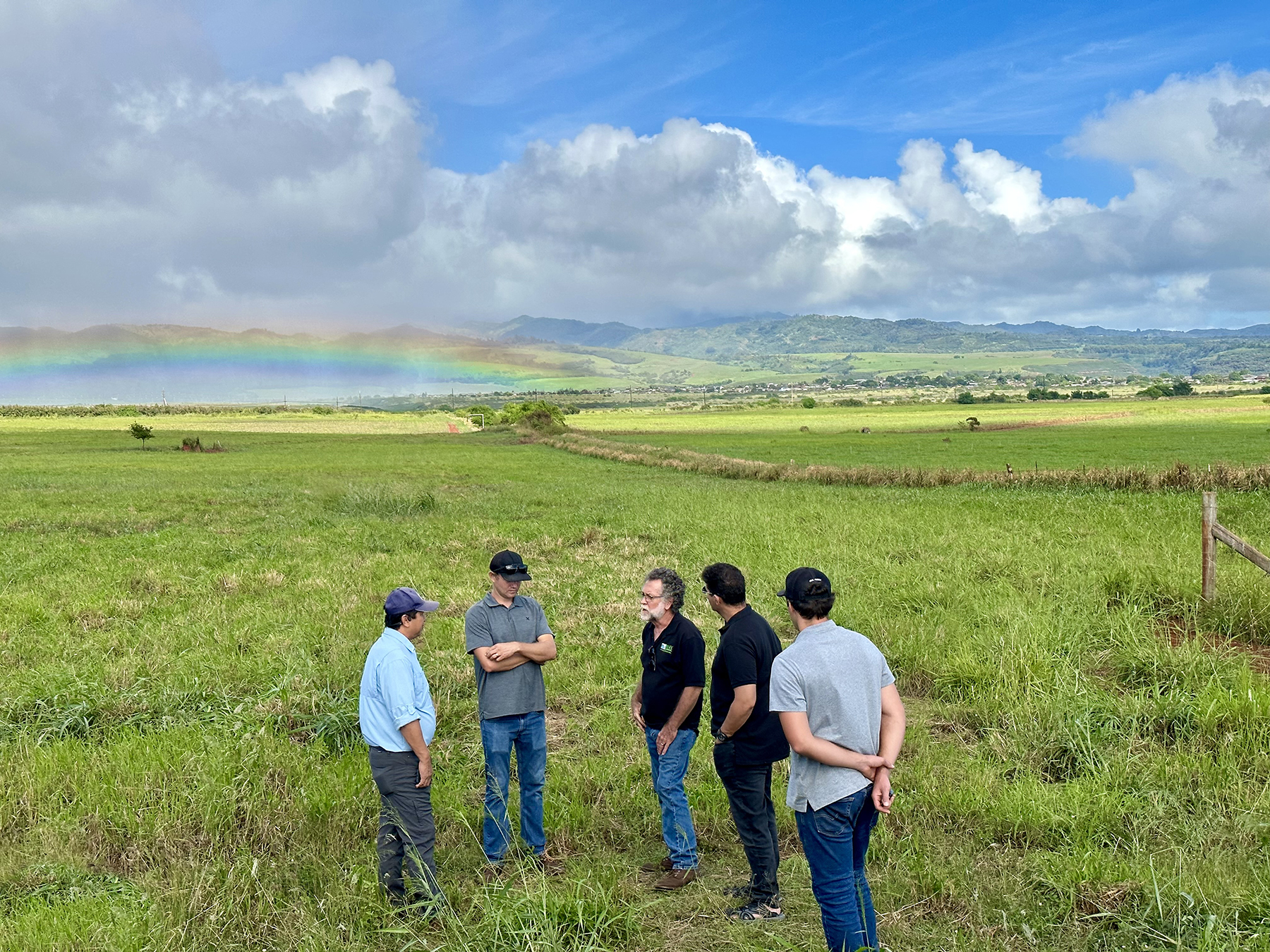
Bob King (center) talks with project team members on Kauai where farming for this project will begin early this year, initially on Gay & Robinson, Inc. land. Additional infrastructure will be provided by this project to enable scaled-up planting, harvesting, and processing of oilseeds for renewable fuel and co-products.
Building upon Pacific Biodiesel’s previous research in its 2011 Hawaii Military Biofuel Crop Project, this new phase on Kauai will demonstrate farming at a much larger scale of 1,000 acres or more, and include sunflowers and other crops in rotation with food crops. The production model will include expanded production of culinary oils and other value-added food products, high-protein meal for animal feed, biodiesel and co-products from biodiesel production such as glycerin and potassium salt cake (a potential non-petroleum fertilizer for local agriculture).
As stated by my husband Bob King, Founder and President of Pacific Biodiesel, “At its core, this project supports Hawaii’s local economy, using local resources and creating jobs in our state to manufacture products for our local community while urgently fighting the effects of the global climate crisis.”
Pacific Biodiesel’s community-based production is a model for the circular economy and now more important than ever. Hawaii is the most isolated community on the planet and, like other vulnerable island communities around the world, we are on the front lines of climate chaos. Our company, the nation’s longest operating commercial producer of biodiesel, created the first retail biodiesel pump in America in Maui County. The deadly, climate crisis-accelerated Maui wildfire disaster last August became the latest example of the increasingly dire state of our planet that will continue unless we support community-based visionary solutions such as locally produced biodiesel.
HOW you do something is as important as WHAT you do. And, in the case of this project, WHERE we do it also matters. Our choice to expand Pacific Biodiesel operations to Kauai for this project was intentional. Kauai is on track to be the first county in Hawaii to reach 100% renewable electricity production, by 2033, a decade earlier than the State of Hawaii’s mandated timeline of 2045. Pacific Biodiesel last year begin supplying our locally produced biodiesel to Kauai’s electric utility, KIUC, as the back-up source for firm renewable energy. Kauai is showing the world that a vulnerable island community can excel in community-based climate action.
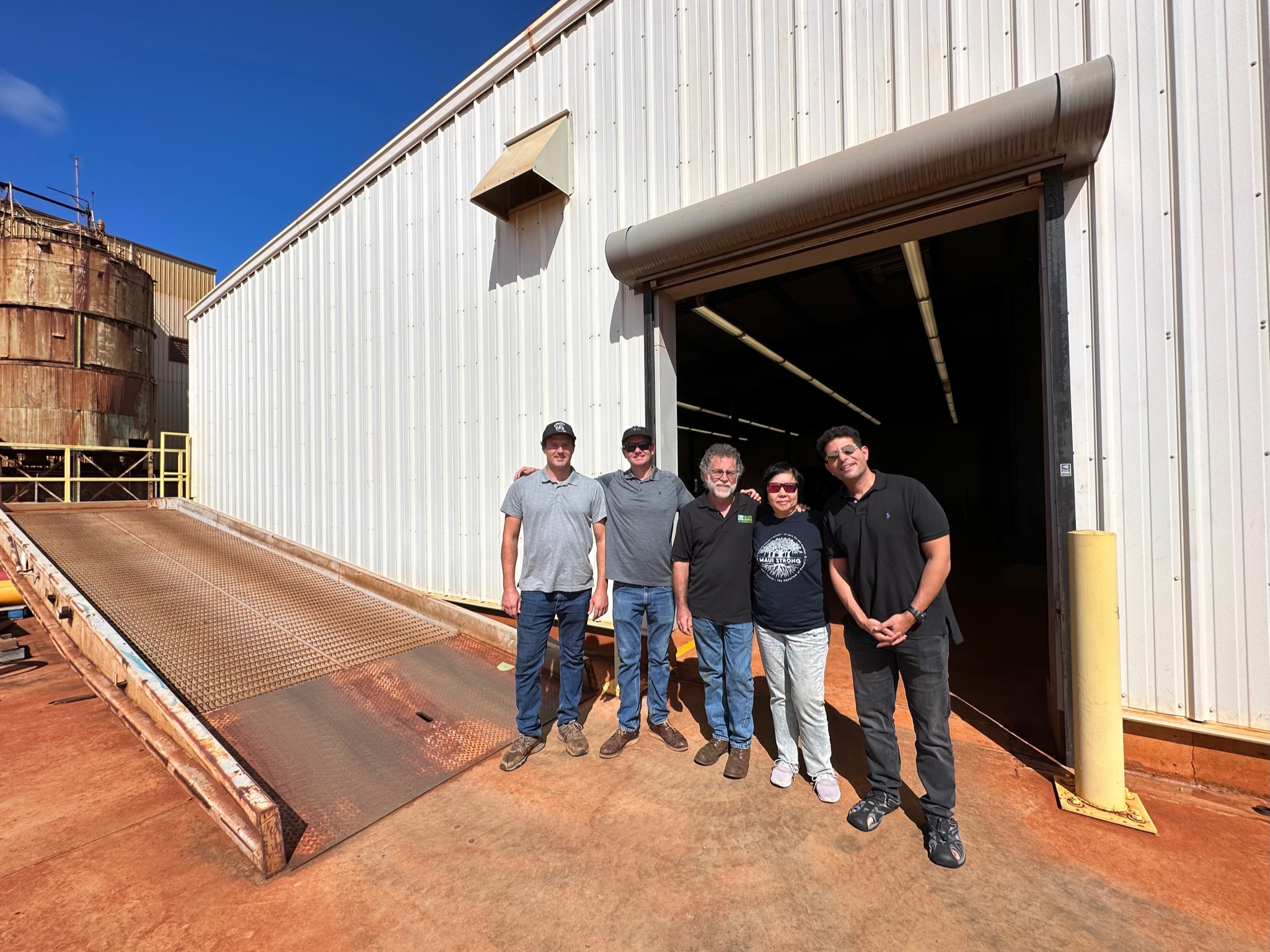
Pacific Biodiesel project team members recently completed a site visit at their new crushing mill site on Kauai. Pictured from left are George Twigg-Smith, production manager; James Twigg-Smith, director of agriculture operations; Pacific Biodiesel founders Bob and Kelly King, and Tarek Abdallah, an engineer at USACE ERDC’s Construction Engineering Research Laboratory.
The project will initially assess production of the 100% virgin oil feedstock prototype fuel using oilseed cover crops grown and processed on Kauai. Utilizing the local feedstock oil to produce biodiesel at our company’s Hawaii Island refinery will enable real-time testing to ensure compliance with ASTM D6751. Performance of the prototype fuel will be validated on military power generation platforms.
While it has felt like nearly three decades of pushing a boulder uphill, Bob and I are excited now to be the right partner at the right time. Coupled with 28 years of biodiesel production and innovations in Hawaii, the regenerative agriculture experience we have been demonstrating at our 115-acre central Maui farm since 2016 gives us a running start in this important renewable energy effort for USACE when time is of the essence.
“This project is strategically centered on an established farming model developed by biodiesel producer, Pacific Biodiesel,” said Tarek Abdallah, an engineer at USACE ERDC’s Construction Engineering Research Laboratory; ERDC is the R&D arm of USACE. “Given previous research and development on the farming and oil production model that has occurred over the last decade, the proposed prototype solution presents lowered risk level and is technically mature to enable a high level of readiness.”
As our industry has been proving for decades, biodiesel mitigates risk and is an established advanced biofuel technology that is readily available for the immediate reduction of greenhouse gas emissions. Electrification, with its many benefits, is not the sole solution as we grapple with the critical mission to wean our society off fossil fuel. As communities continue to focus on the circular economy, and delve more into life-cycle analysis, we are realizing that solar and hydrogen are actually more GHG intensive than biodiesel and an expensive burden for local businesses.
For example, at a statewide transportation conference last year, Hawaii fleet experts pushed back against accelerating to near total electrification of the transportation sector and calls to use unproven, emerging, expensive hydrogen technology. Fleet managers clearly expressed the argument for keeping their diesel trucks and simply switching to local renewable biodiesel. Diesel engine vehicles, they explained, allow for longer driving distance, more drive time and higher payload to be transported. In comparison, electric trucks reduce payload due to heavy battery weight and reduce driving range due to frequent recharging, which takes away from drive time during a driver’s maximum 12-hour allowable shift. Also, electric and hydrogen vehicles are exponentially more expensive and require long lead time. All of this translates to economic impact – requiring electrification of all ground transportation will add costs to businesses and the end consumer, which will hurt local economies.
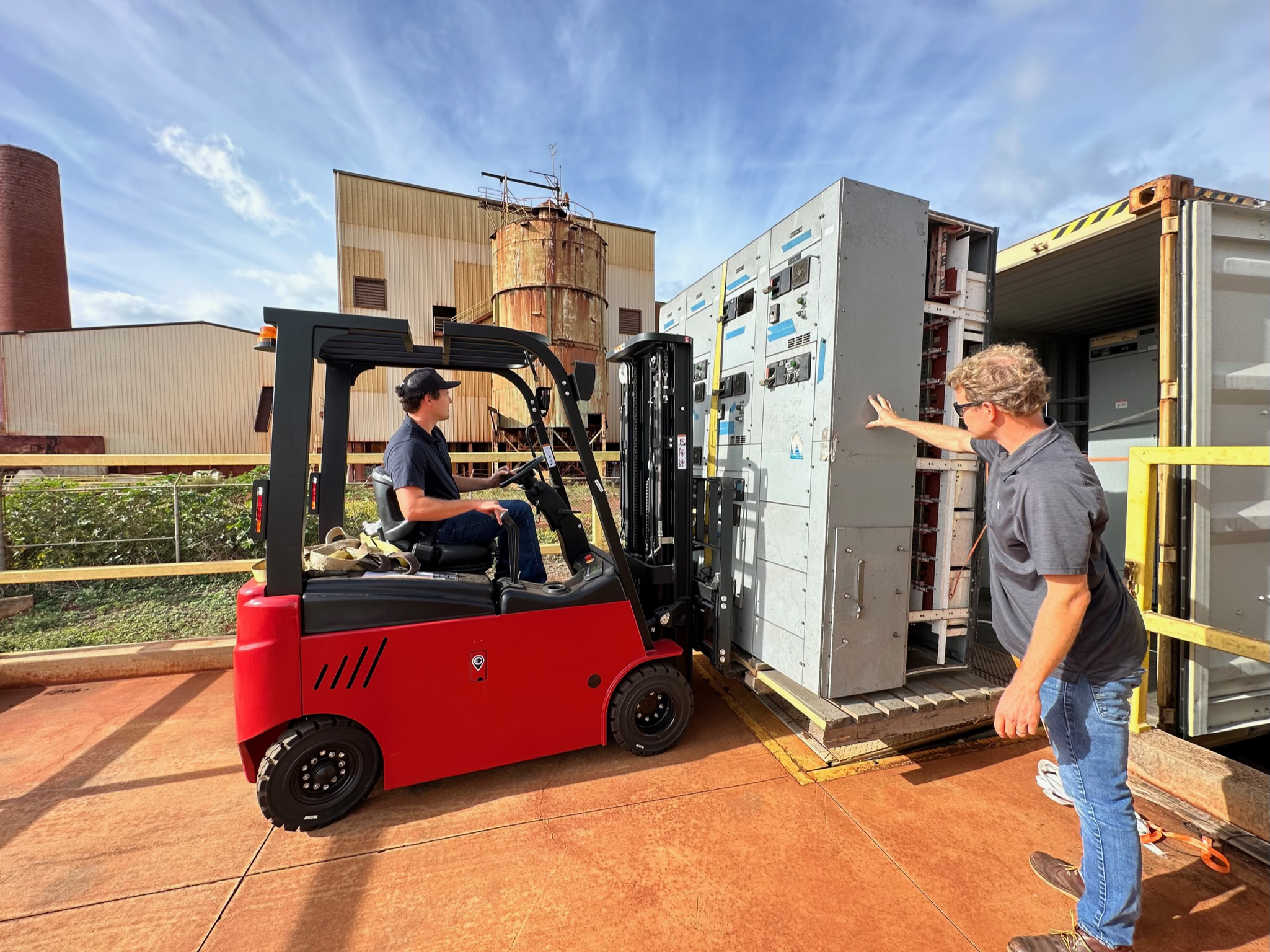
Unloading the company’s bottling line equipment at the new Kauai crushing mill warehouse are (on left) George Twigg-Smith, production manager, Maiden Hawaii Naturals, LLC and James Twigg-Smith, director of agriculture operations, Pacific Biodiesel Technologies, LLC.
It’s important to remember that the real perpetrator of our climate chaos is fossil fuel.
And there is no silver bullet solution. We need to stay open to innovation while not ignoring proven technology. Currently in Hawaii, biodiesel produced from recycled used cooking oil is by far the lowest lifecycle greenhouse gas transportation fuel available. Lifecycle is the key and ignoring these statistics only leads us to exporting our pollution.
As more and more people get on board with biodiesel, and as our company expands its support of Hawaii’s circular economy, it is a full circle moment for Pacific Biodiesel.
Founded on Maui in 1995, Pacific Biodiesel began as a recycling solution. Bob developed a commercially viable method to recycle local used cooking oil to manufacture biodiesel. Our first plant on Maui produced 250,000 gallons of biodiesel annually. Today, at our state-of-the-art refinery on Hawaii Island, we recycle used cooking oil from restaurants statewide and annually produce nearly 6 million gallons of premium distilled biodiesel, sold entirely in Hawaii. Last year, we reached a production milestone – since our Hawaii Island refinery began making fuel in 2013, we have produced over 50 million gallons of advanced biodiesel for Hawaii – the energy equivalent of 725,000 Megawatt hours (725 Gigawatt hours) of clean electricity for our state!
Seven years ago, as the last of Hawaii’s sugar cane fields was being phased out on Maui, our first 12-acre field of sunflowers bloomed at our farm in Maui’s Central Valley on Earth Day – a sign of hope and positive climate action. This spring, we’re anticipating our first 100 acres of sunflowers blooming on Kauai as part of our expanded farming operation with this project.
With our committed, hard-working staff of 100 employees statewide, we have truly set standards for local climate action, the circular economy and for integrity in innovations. I am also proud and grateful for all the additional folks – our board of managers, business partners, customers, environmental organizations and supporters near and far – who keep us going through tough times. My vision for farming sunflowers in Hawaii, and our reality today of exponentially expanding regenerative agriculture to farm food and fuel, was inspired by my favorite quote, by renowned cultural anthropologist Margaret Mead:
“Never doubt that a small group of thoughtful committed individuals can change the world. In fact, it’s the only thing that ever has.”
Read the article published in Biobased Diesel Daily here.
